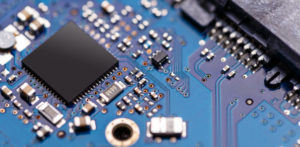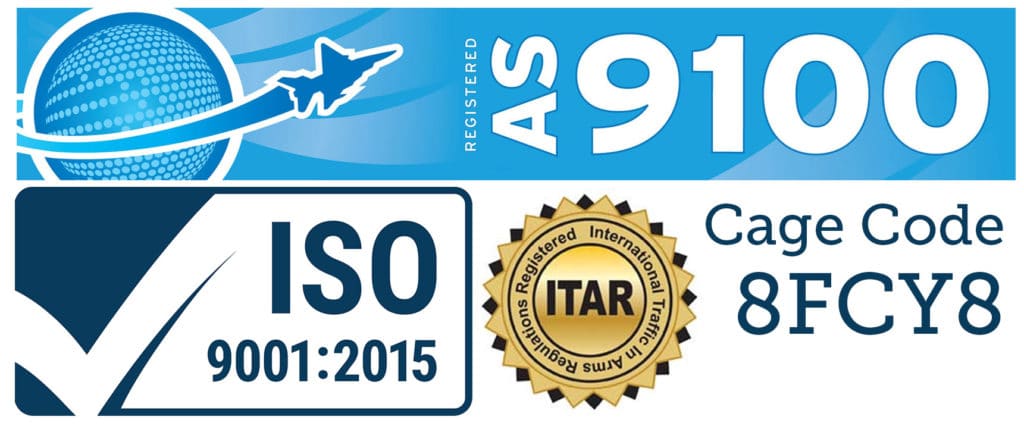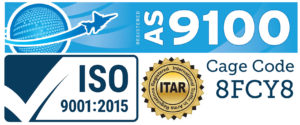Electronic Metals and Alloys
Electronic Metals and Alloys possess exceptional electrical, magnetic, surface and corrosion-resistant properties that play major roles in everyday electronic applications such as computers and smart phones.
Materials that play a major role in the electronic metals and alloys categories include 200 Series Nickel.

For many electronic and communication components, engineers will use commercially pure, low-alloy nickel. Compared to nickel alloys, commercially pure nickel maintains high electrical and thermal conductivity. It also has good ductility and malleability, both of which play an important role in the manufacture or repair of sensitive, small components that require much precision.
Nickel Alloy 200 is another electronic grade alloy that’s often used in electronic applications. One of the world’s toughest metal alloys, Nickel Alloy 200 maintains very good resistance to corrosive and caustic environments and acids, including hydrochloric, sulfuric and hydrofluoric.
This alloy is commercially pure (99.6% wrought nickel) and can be used across many different applications due to its good mechanical attributes and resistance. Nickel Alloy 200 also has magnetic and magnetostrictive properties along with the essential electrical and thermal conductivity requirements for electronic components.
Tantalum Takes Center Stage
A highly stable metal that’s virtually immune to chemical degradation at low temperatures, tantalum is another popular choice for engineers and designers involved with the production of electronics. The metal also demonstrates high levels of corrosion resistance (when it comes in contact with moisture or air) and forms a thin, protective oxide layer upon exposure to the atmosphere.
Used in various alloys, tantalum adds high strength, ductility and a high melting point to those formulas. Over 50% of the world’s tantalum is used to make electrolytic capacitors and vacuum furnace parts. It can also be found in electronics, cell phones and micro-electromechanical systems (MEMS) technology, or the tiny integrated devices and systems that combine mechanical and electrical components.
As the miniaturization trend continues, the use of tantalum in electronics will likely increase due to the metal’s very high working temperatures (although the metal itself is much heavier than, say, tungsten). Because it’s corrosion-resistant to hydrochloric, sulfuric and other acids, tantalum is also used frequently by large chemical companies (e.g., to make the tubs that the companies mix their chemicals in).
Selecting the Right Metal or Alloy
When selecting electronic grade alloys, procurement professionals and engineers should carefully consider the specific application that they’re working on and the environment that the device or equipment will be operating in. This will determine your metal purity requirements, which is a key consideration due to the fact that within the Nickel Alloy 200 series there are various purity levels.
For example, Nickel 290, a grade of nickel made by a powder-metallurgy process, offers very high purity levels that reach as high as 99.95%. Often used in electronic applications such as components of hydrogen thyratrons and for battery applications, Nickel 290 has a low annealing temperature that makes it superior to other forms of nickel as a substrate for precious-metal cladding.
Finding the right electronic grade alloy for your specific project is critical to ensuring proper functionality, heat-resistance and corrosion-resistance for that application. To guarantee the best match, start by carefully assessing your own project needs and then comparing them against the properties and specifications of each prospective metal alloy.

REQUEST A QUOTE or
Get in Touch
Address
Vulcan Metal Group LLC
23888 Madison Street
Torrance, CA 90505
United States
Phone / Fax
Phone: +1 310.882.6841
Fax: +1 310.893.0579
Cage Code
8FCY8
Quality Policy: Vulcan Metal Group, LLC. supplies mission critical, special purpose materials, and products at a competitive price. The company’s quality system is registered to ISO 9001 and AS9100 and follows its principles for the governance of the business. An active continual improvement program and compliance with all applicable OSHA, federal, and state regulations is maintained.


